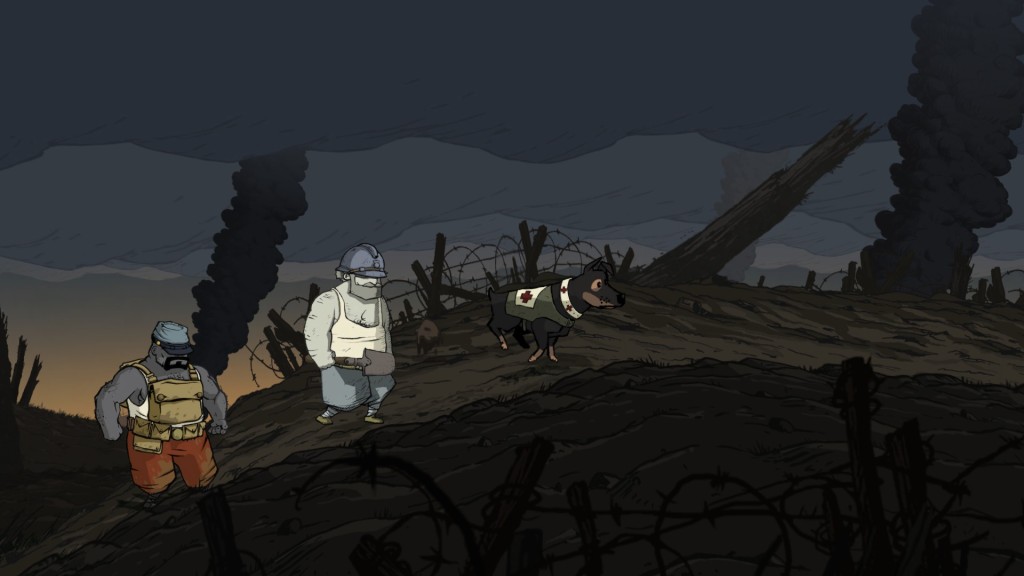I’m halfway through Valiant Hearts: The Great War, Ubisoft Montpellier’s adventure game set during World War 1. Billed as a “story of crossed destinies and a broken love in a world torn apart”, VH‘s heart is in the right place — but its execution can be frustratingly inconsistent.
As with Ubisoft sibling Child of Light, VH‘s most noticeable strength is its presentation. The art is as lovely as its subject is grim: in eight hours, I’ve already taken 286 screenshots (several are at the bottom of this post). Environments are packed with detail, from the lights of pre-war Paris to a lonely skeleton buried beneath a trench, not far from a rusty shovel. Since that sequence calls for you to tunnel under the same trench, the shovel is a sobering touch. Who was that luckless sapper? We will never know — and that, I think, was the developers’ point.
